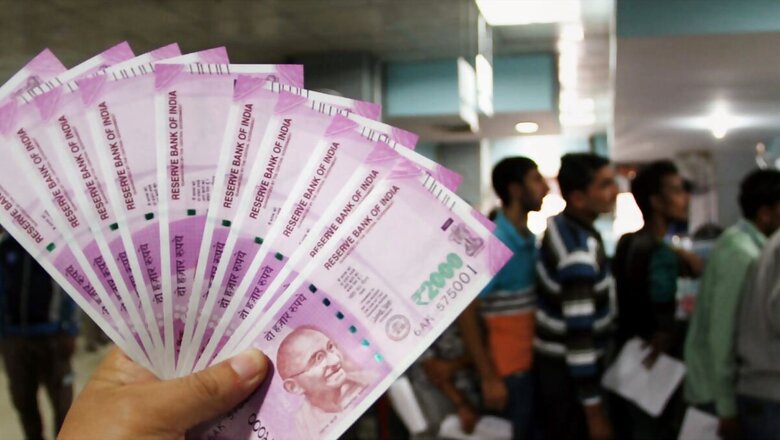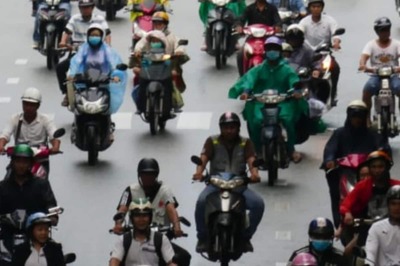
views
After the Reserve Bank’s announcement of withdrawing Rs 2,000 currency note as a legal tender, there have been reports of increase in purchase of transport fuel, gold and silver jewellery. However, there is no panic buying as witnessed in 2016 during demonetisation.
LocalCircles conducted a survey to understand what people think of the current development, and whether the small-, medium- or large-sized business should worry about disruption due to withdrawal of the Rs 2,000 bill.
Almost 64% of respondents indicated that they support the RBI move, while 22% opposed it; 12% indicated it makes no difference to them; and 2% of respondents said they are not sure.
When asked how much amount do you they currently have in their household in the form of Rs 2,000 notes, 64% said they don’t have the bills, while 6% indicated that they have Rs 1 lakh. The data shows 15% have up to Rs 20,000; 7% have between Rs 20,000 and Rs 40,000; 6% have between Rs 40,000 and Rs 1 lakh; 2% of respondents have Rs 1 lakh to Rs 2 lakh. Only 2% had Rs 2-Rs 10 lakh while another 2% had more than Rs 10 lakh in 2,000 currency notes.
How the move will pan out, 68% of respondents believe that RBI’s proposed move to allow Rs 2,000 note to remain a legal currency after September 30 will enable those with black money to exploit the situation and convert them into lower denomination currency through exchange.
When asked if the citizens have attempted to use Rs 2,000 note post the government announcement about its withdrawal from circulation? Only 34% of the 11,253 respondents indicated that they have tried to use the notes, while 66% stated that they “haven’t attempted to use it”.
Also, 91% of respondents who attempted to use Rs 2,000 notes stated that they experienced difficulty in using the bills at retail stores, chemists, hospitals, service providers and even petrol pumps.
In the backdrop of the State Bank of India’s announcement that it would allow exchange without necessary documentation, citizens were asked should the government only permit deposit of Rs 2,000 notes into bank accounts and prohibit exchange? 68% said “this must absolutely be done”; while 29% opposed it indicating that “exchange should also be permitted as it is right now” and 3% of respondents gave no clear response.
All in all, unlike in 2016, when demonetisation of Rs 500 and Rs 1,000 notes was introduced, the withdrawal of Rs 2,000 currency notes does not appear to affect too many citizens, according to the survey.
The survey received over 57,000 responses from citizens located in 341 districts of India. 64% were men while 36% respondents were women. 49% respondents were from tier 1, 34% from tier 2 and 17% respondents were from tier 3, 4 & rural districts.



















Comments
0 comment